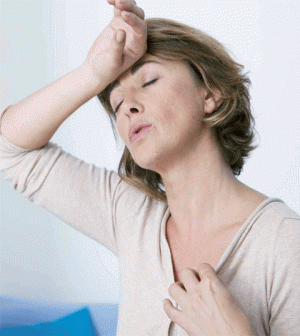- Finding Unshakable Power in a World That Wants to Pull Us ApartPosted 6 months ago
- What could a Donald Trump presidency mean for abortion rights?Posted 6 months ago
- Financial Empowerment: The Game-Changer for Women in Relationships and BeyondPosted 7 months ago
- Mental Health and Wellbeing Tips During and After PregnancyPosted 7 months ago
- Fall Renewal: Step outside your Comfort Zone & Experience Vibrant ChangePosted 7 months ago
- Women Entrepreneurs Need Support SystemsPosted 7 months ago
Natural Menopause Remedies

By Claude Gallant | NaturallySavvy
Being a woman is not easy and going through menopause is challenging even for the best of us. Embracing the change enables you to get in front of it and do something about it. This is the beginning of an inevitable journey for women, but learning about the ways in which you can take control of your menopause is an excellent step in being able to cope with it in a healthy manner.
Some menopause symptoms may be alleviated with dietary changes, weight management, and lifestyle modifications (like quitting smoking, limiting caffeine and alcohol, and increasing exercise). Removing unnecessary stress and coping with unavoidable stress may also alleviate symptoms.
Natural products can help relieve the symptoms of menopause. Remember that what works for others will not necessarily work for you so be well informed and patient.
Here are eight natural remedies that are worth a try:
Black Cohosh (Actaea racemosa, Cimicifuga racemosa): This herb has been used for centuries to treat hot flashes and other menopausal symptoms. However there is conflicting clinical evidence. Some clinical evidence suggests it may help relieve menopausal symptoms (night sweats, migraines, irritability, heart palpitations and vaginal dryness) while other studies show little to no benefit. While there is not enough reliable data is available to determine the effectiveness of black cohosh in menopause treatments, there is enough evidence to show it is safe. It is worth a try.
Evening primrose oil: Evening primrose oil is rich in gamma-linolenic acid (GLA) and is taken to help alleviate breast tenderness and menopausal symptoms but there is limited evidence to show how and if it works.
Ginseng (Panax ginseng or Panax quinquefolius): This herb has been widely used in traditional medicine for its adaptogenic properties. It helps cope with stress and boost the immune system. It has been used to treat symptoms related to menopause.
Red clover (Trifolium pratense): Red clover is a rich source of isoflavones (often termed phytoestrogens because of their functional similarity to estrogens). A small amount of evidence indicates red clover may help reduce the side effects of menopause.
Sage (Salvia officinalis): This herb has many medicinal properties and is very useful to manage excessive sweating and has been used for the treatment of hot flashes. Look for concentrated supplements as the sage in your spice cabinet is not strong enough.
St. John’s Wort (hypericum perforatum): This can be used as a sedative for relief of mild to moderate depression, restlessness or nervousness and helps treat symptoms of sleep disorders that often occur during menopause.
Soy products: Isoflavones are the active components in soy which help reduce menopause symptoms. Soy can be found in tofu, edamame, tempeh, soybeans, flaxseed, soy milk, soy sauce and miso (soybean paste).
Vitamin E: This vitamin has been used to treat hot flashes but to be effective the dose has to be quite high (400 IU) which is not safe for everyone.
As more people turn to natural products, ideally well-designed studies will hopefully prove that efficacy can be sustained, as these studies are currently missing.
Hormone Replacement Therapy
Hormone replacement therapy (HRT) is often prescribed to reduce the negative effects of menopause such as hot flashes, mood swings, vaginal dryness and osteoporosis. Unfortunately there is risk associated with it. Many factors such as family medical history, your age when you reach menopause, you risk of bone loss and the gravity of your symptoms will affect your decision and practitioner recommendations regarding HRT.
If you decide to go with HRT, you should carefully research all of your options and be prepared for the side effects such as bleeding, bloating, breast tenderness or enlargement, headaches, mood changes, and nausea. Also, for some women hormone therapy may increase their chance of blood clots, heart attacks, strokes, breast cancer and gall bladder disease. Unfortunately the severity of symptoms for some women necessitates hormone therapy for short-term treatment.
Menopause is inevitable and rather than lamenting the ageing process, be thankful that you are experiencing it and have many more years to enjoy your life! Make informed decisions to handle your menopause. Eat healthy, keep active, and include supplements to help avoid associated issues and risks. Reach out for help if you need it, and you will be surprised at how many women are experiencing the same issues and will offer support. Most importantly, enjoy the many golden years of your life!






